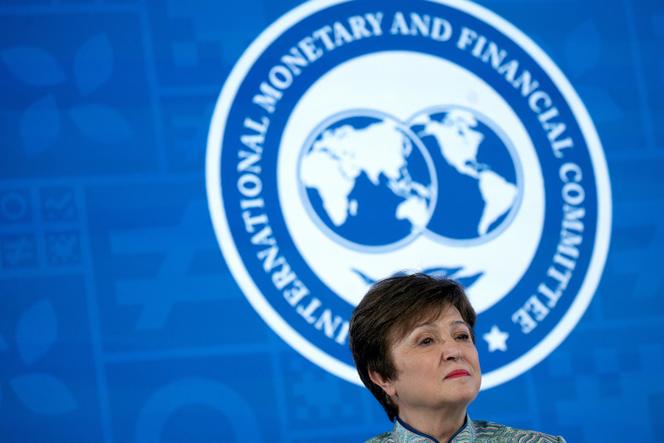

IMF managing director Georgieva: 'We have placed too much emphasis on the benefits of globalization'

While inflation is finally easing, the Middle East crisis and geopolitical risks could once again push up oil prices, warns Kristalina Georgieva. While visiting Paris from November 9 to 11, the managing director of the International Monetary Fund (IMF) spoke with Le Monde. She warned of the risk of fragmentation of world trade, which she believes is likely to increase poverty and insecurity for all.
For a long time, we have placed too much emphasis on the benefits of globalization. They have been considerable: Over the last three decades, the global economy has tripled, in particular to the benefit of developing economies which have quadrupled, and the result has been an incredible reduction in poverty.
But not everyone benefited from it. For too long, insufficient attention has been paid to those whose jobs and livelihoods have evaporated, because compensation mechanisms have been insufficient. This has created fertile ground for anti-globalization movements and populism.
Worse, since the pandemic, we have witnessed a series of exogenous shocks that lead to massive interruptions in supply chains. This may push companies to want to bring part of their production closer together. But this is not without problems because it concentrates the risks in the same place in the event of a new shock.
We cannot return to the past model, in which too many people lost out, and which does not sufficiently recognize that the security of supplies is also a question of economic security and not only national security. We need to rethink globalization as much as possible in collaboration with our partners. Our advice for countries is to not play the national interest card against others, but think about mechanisms to continue global integration and balance risks. Because greater fragmentation of global trade would have a very clear consequence: We would all be poorer and less secure.
Depending on the scenarios, it could amount to between 0.2% and 7% of global gross domestic product (GDP). Seven percent, the extreme case, would be equivalent to excluding two countries like Germany and Japan from the global economy. To limit this risk, we must resist the temptation to impose trade barriers, the number of which has increased from around 500 in 2017 to 1000 in 2019 to 3000 in 2022.
However, our research shows that if one of the three major economies in the world, the United States, Europe, China, takes a fundamentally protectionist measure, the probability that a partner country will take a protectionist measure in response is 73% within 12 months. This is a dangerous slope.
You have 70% of this article left to read. The rest is for subscribers only.
